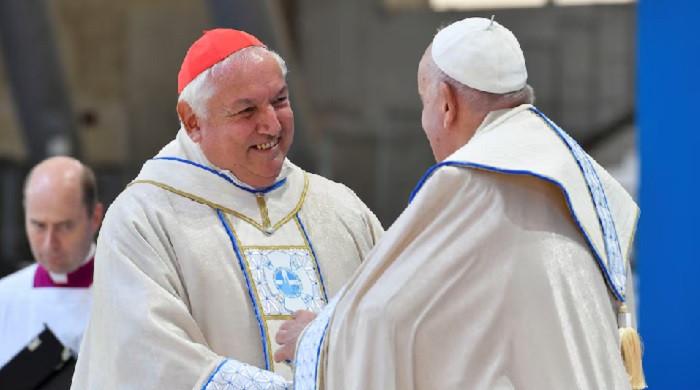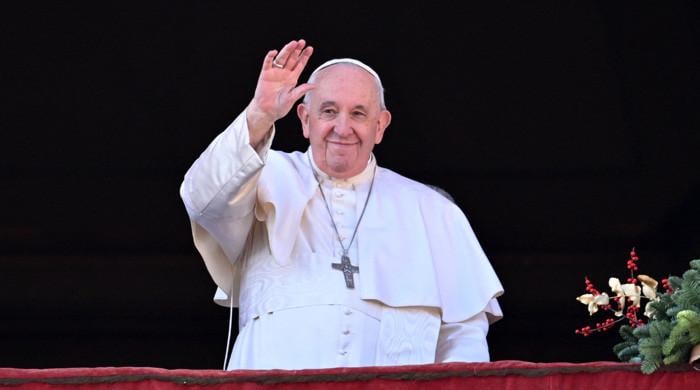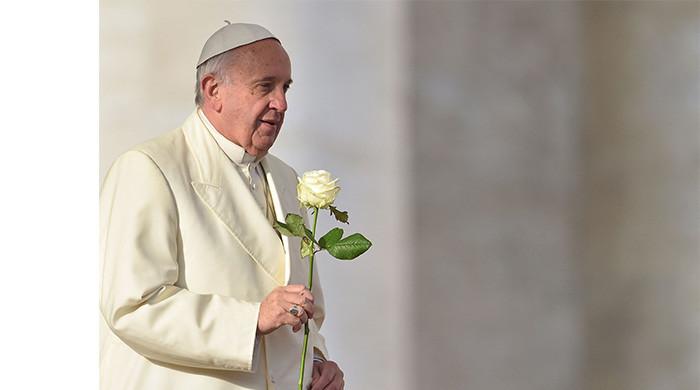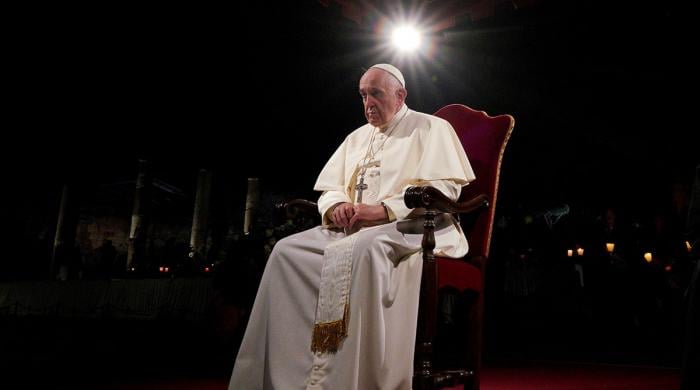Tens of thousands march in New Zealand Maori rights protest
More than 35,000 demonstrators pour into Wellington, shut down busy streets with "haka" chants
November 20, 2024
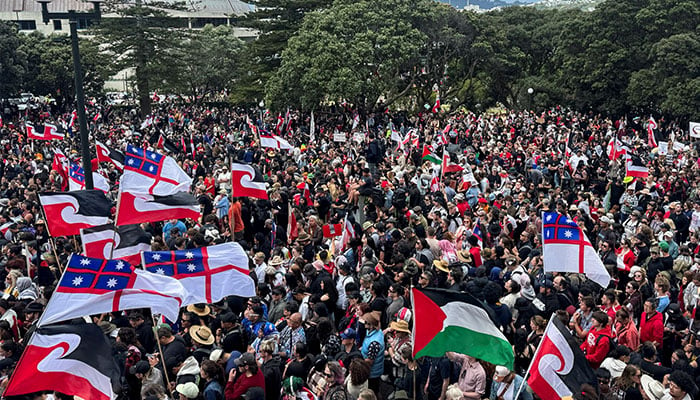
- Children march with adults bearing full-face Maori "moko" tattoos.
- Protests swell after party in govt draft bill to redefine Treaty of Waitangi.
- Bill's mere introduction triggers one of NZ's largest protests in decades.
WELLINGTON: Booming Indigenous Maori "haka" chants rang out across New Zealand's capital on Tuesday, as tens of thousands rallied against a conservative push to redefine the nation's founding treaty.
More than 35,000 demonstrators poured into the harbour side city of Wellington, police said, shutting down busy streets as their spirited procession inched its way towards parliament.
Bare-chested men draped in traditional feather cloaks were joined by horse riders waving the red, white and black Maori flag.
Children marched alongside adults bearing distinctive full-face Maori "moko" tattoos and clutching ceremonial wooden weapons.
Protests have been swelling throughout New Zealand after a minor party in the conservative coalition government drafted a bill to redefine the 1840 Treaty of Waitangi.
Although the bill has almost no chance of passing, its mere introduction has triggered one of New Zealand's largest protests in decades.
After it was presented for debate in parliament last week, 22-year-old Maori Party MP Hana-Rawhiti Maipi-Clarke took to her feet in the chamber, ripped the bill in half, and launched into a haka.
She joined the crowds of protesters gathered on the lawns Tuesday outside New Zealand's beehive-shaped parliament building.
"I may have been suspended for 24 hours and not let into the gates of the debating chambers, but the next day I showed up outside the steps with a hundred thousand of my people, marching with our heads held high and our flags waving with pride," she told them.
"We are the king makers, we are the sovereign people of this land and the world is watching us here."
Many critics of the bill — including some of New Zealand's most respected lawyers — see it as an attempt to strip long-agreed rights from the country's 900,000 strong Maori population.
"It's not the best way to have a conversation. We will not accept unilateral change to a treaty that involves two parties," said Ngira Simmonds, a key advisor to New Zealand's Maori queen.
"There is a better way," he told AFP from Wellington.
Many demonstrators arrived in Wellington after a nine-day "hikoi" — or protest march — that began hundreds of kilometres away at New Zealand's northern tip.







